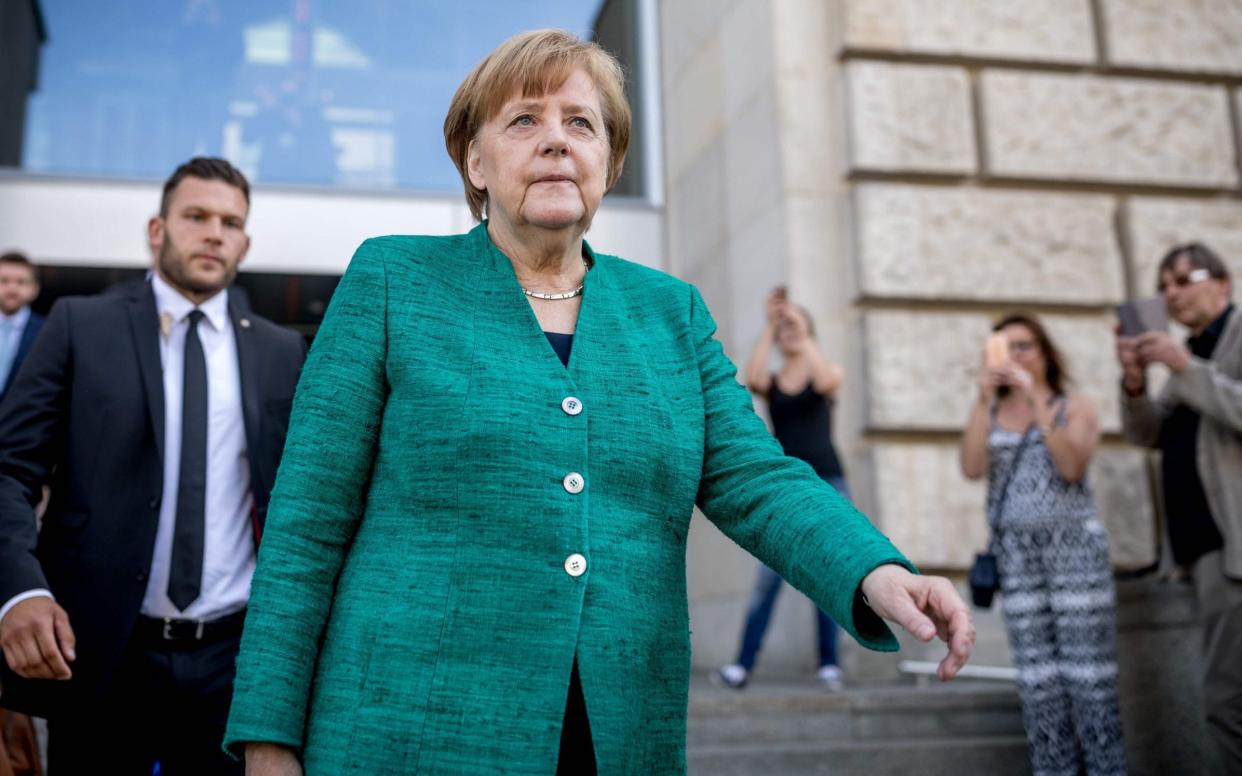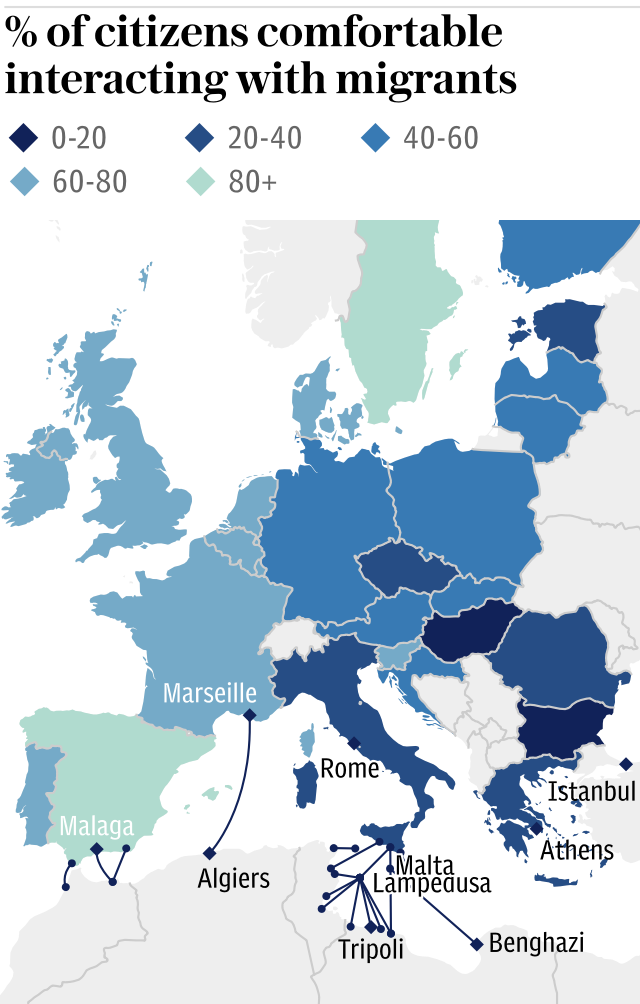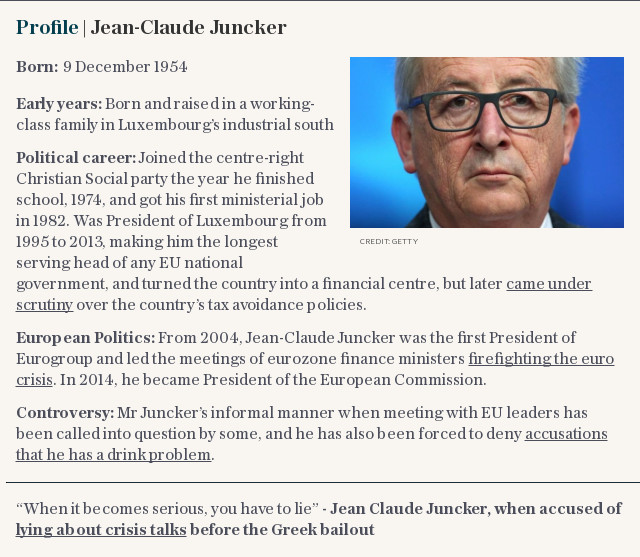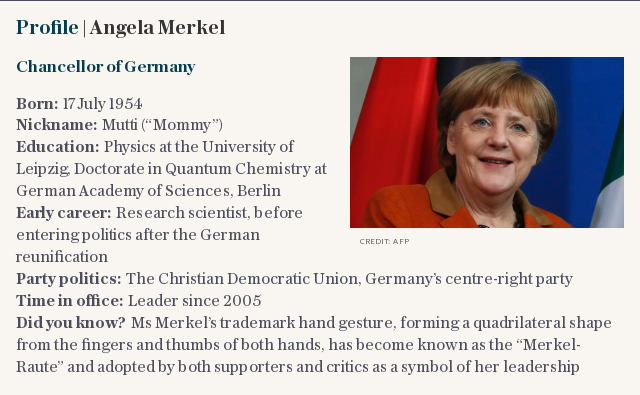Jean-Claude Juncker calls 'mini summit' to head off migration threat to Merkel's leadership

The European Commission has announced an emergency mini-summit in a bid to bridge deep EU divisions over migration ahead of next week’s crunch meeting of EU leaders in Brussels that could spell the end of Angela Merkel’s government.
Germany, France, Italy, Spain, Austria, Greece and Bulgaria are expected to attend what Jean-Claude Juncker described as an "informal working meeting" on Sunday.
The president of the European Commission will hope to salvage his package of reforms on EU asylum and migration rules, which were brutally exposed as inadequate during the height of the migration crisis, at a full European Council summit on June 28.
Angela Merkel will hope the meeting will help her see off a stand-off with her Christian Social Union (CSU) coalition partners over her migration policy.
Horst Seehofer, the interior minister and CSU leader, has given her a two week ultimatum to negotiate a solution with Germany’s European partners, or he says he will unilaterally order police to start turning away migrants at the German border. That would leave Mrs Merkel with little choice other than to sack him, which could bring down her government if he pulls the CSU out of the coalition.

She faced a new challenge from within her coalition government over her backing for a limited eurozone budget in a joint declaration with with France’s Emmanuel Macron on Wednesday.
Mrs Merkel rebuffed Mr Macron’s call for a Eurozone finance minister and is believed to have agreed to a much smaller joint budget than he wanted, although figures have yet to be released.But that was not enough for Markus Söder, the regional prime minister of Bavaria and a senior figure in the CSU.
It was the second CSU attack on Mrs Merkel in days and comes just as she was hoping she had seen off a rebellion by the party over her migrant policy after she secured Mr Macron’s support for an overhaul of the EU asylum system.
But in a sign the CSU is not willing to let up on the chancellor, Mr Söder accused her of trying to buy her way out of trouble. “We cannot now launch additional shadow budgets or try to soften the stability of the single currency,” he said. “Nor can we end up trying to buy solutions with German payments.”

Forging a European consensus on migration will prove difficult for the German Chancellor. Italy and Greece have borne the brunt of the migration crisis, while Eastern European countries have bucked hard against the imposition of EU migrant quotas, which redistribute refugees from the hardest-hit border areas across the bloc.
Richer Northern countries argue that only an EU-wide response can secure the EU’s borders, have the weight to force migrant return deals with non-EU countries, and prevent the untrammelled onward movement of migrants to the richer north. The situation has been made worse by the emergence of new anti-migrant governments in Italy and Austria and a hardening of rhetoric in other countries such as Belgium.
Mr Juncker is keen that disagreement over reforms to the EU’s Dublin Regulation and Asylum Procedures laws do not derail hard-won deals struck on five other bills in the package.

One change, favoured by Northern countries and opposed by Italy, extends the period of time in the Dublin Regulation where an asylum seeker can be in a country before being sent back to the first EU country they landed in from six months to between five and ten years.
Under another proposal, a mandatory migrant relocation scheme would kick in in situations of “extreme crisis”, which is a proposal bitterly opposed by the new Austrian government as well as Hungary and its Visegrad country allies.
Leaked draft conclusions for the European Council summit revealed EU leaders would consider “disembarkation centres” to process asylum claims outside of EU territory but made no mention of any deal on the divisive Dublin Regulation.

 Yahoo News
Yahoo News 
